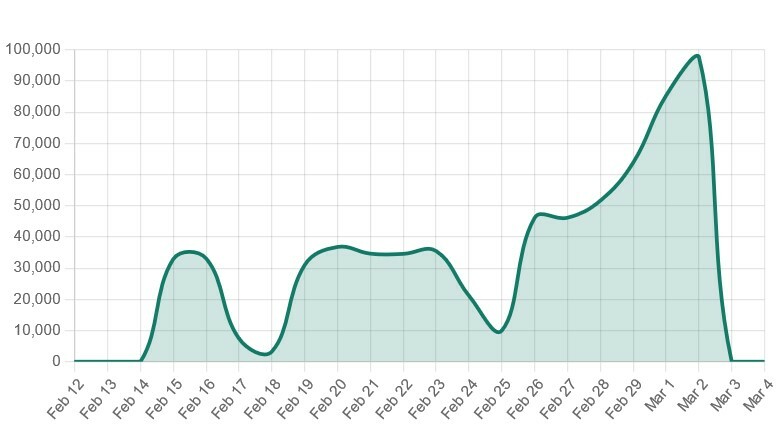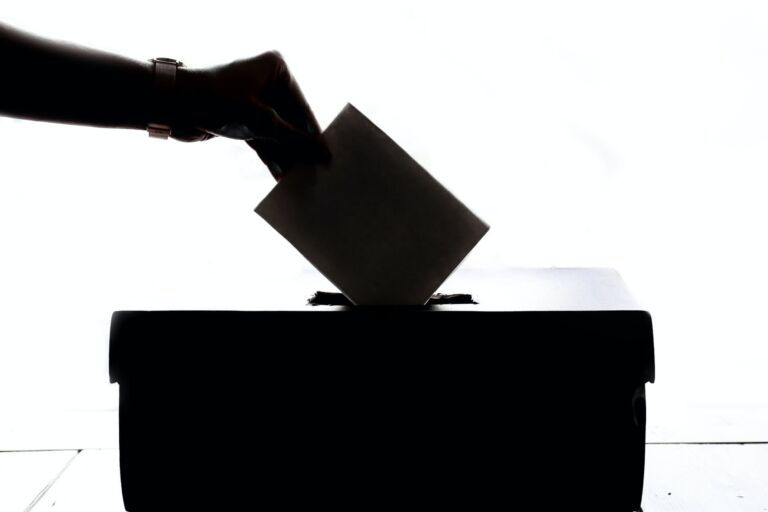- Reducing the number of early voting days may be debated in this year’s General Assembly session
- Reducing early voting days would likely have little effect on turnout
- A possible compromise would be to reduce early voting days but require Sunday voting in every county
Since its inception, early voting has been a source of conflict in North Carolina. However, it has become increasingly popular; over half of North Carolina voters voted early in the 2022 midterm election.
Through changes in voting law and as a result of lawsuits, there have been several changes in early voting since its full adoption in 1999. We may see another change in the upcoming session of the North Carolina General Assembly.
Bills Addressing the Early Voting Question
One proposal submitted to the General Assembly last year and still up for consideration would alter the number of early voting days by amending the state constitution. House Bill 123, “Early Voting Constitutional Amendment,” is sponsored by Rep. Harry Warren (R-Rowan) and Rep. Joseph Pike (R-Harnett).
The bill’s text would present voters with language that would address a contentious question about early voting:
If the General Assembly authorizes voting in person prior to Election Day, then the period of time authorizing voting in person prior to Election Day shall be no longer than seven days, all of which shall be consecutive.
North Carolina currently has a 17-day early voting period. That could include as few as 13 days of voting, depending on whether the county board of election approved voting on Sundays and the first two Saturdays of the period (counties are required to have voting on the last Saturday of the early voting period).
Another bill (House Bill 303) would reduce early voting to eight days by statute.
Reducing the number of early voting days would help county election boards save taxpayer money, as seen in these examples:
Davie County, in the western Piedmont, reported spending $44,500 on early voting or “approximately $3,423 per day.” Jones, a small county on the coastal plain, spent “around $6,000 on additional salaries for the entire one-stop voting period.” Johnston, a relatively large county southeast of Raleigh, sent a spreadsheet showing that they spent $261,550 (including $45,180 for “rent of sites” and $216,370 for “cost of precinct officials”) on their seven one-stop voting locations. If there were fewer days of early voting, county governments could spend some of those funds on other things.
However, the savings might not be worth it if reducing early voting days would make it impossible for people to vote. Would it?
Less Time for Early Voting Does Not Mean Fewer Votes
One of the persistent myths about early voting is that adjusting the number of available days would have a proportionate impact on how many people vote. For example, according to the John Locke Foundation’s Vote Tracker page, 671,112 people voted early in the March 5 primary. That is an average of about 39,477 votes per day during the 17 days of early voting.
Reducing early voting days would move votes to other days, not significantly lower overall turnout.
Those votes were not evenly distributed, however. As seen in the graphic from Vote Tracker below, the first 11 days averaged only 25,979 votes per day. Voting on the first two weekends was especially low, in part because most counties do not have early voting on Sundays. The last six days of early voting averaged 67,999 votes per day, however, including 97,755 votes on the last day. In other words, each day of the early voting period is not equal.
Distribution of Early Votes in the March 5, 2024, North Carolina Primary

Source: Vote Tracker
If we reduced the early voting period from 17 days to seven, are we to suppose that the 275,720 votes cast during the first 10 days of early voting in the 2024 primary would disappear?
The good news is that we do not have to suppose. Research has already been done on the effect of early voting on turnout. While results vary, most studies have found that early voting does not increase voter turnout. Some studies have found that early voting is associated with decreased voter turnout. A 2019 report on early voting in North Carolina found “little evidence that changes to early opportunities in North Carolina had uniform effects on voter turnout.”
So, reducing early voting days would move votes to other days, not significantly lower overall turnout. Counties should still be required to have common hours for all their early voting sites to minimize any small impact that a reduction in early voting days might have.
Fewer Early Voting Days but More Sunday Voting?
Another aspect of early voting that engenders controversy is opening early voting sites on Sundays. For example, when some county election boards could not agree on whether to have Sunday voting, the North Carolina Black Alliance claimed that not having Sunday voting would be “subversive tactics of voter suppression.”
Only 35 of North Carolina’s 100 counties had at least one day of Sunday early voting in the 2024 primary. While it may be convenient for some voters, keeping voting sites open for all 17 days of the current early voting period may be logistically challenging for some counties and exhausting for staff, especially in smaller counties with only one early voting site maintained by regular election board personnel.
At first blush, the language of HB 123 would appear to require Sunday voting. However, the seven days in the bill are the period for authorizing early voting, which is not the same as requiring it. If the General Assembly does not alter the current requirement for counties to have early voting on the last Saturday before election day, the first day of the early voting period would be on a Sunday.
Since reducing early voting days is associated with the political Right and calls for more Sunday voting are associated with the Left, a reasonable compromise could be to reduce the early voting period from 17 days to somewhere between seven and 10 days and to require all counties to open early voting sites for the one Sunday within that period. The resources saved through reducing the early voting period would make requiring Sunday voting during that period less onerous. The change would also benefit voters by giving them equal access to early voting in every county.
The General Assembly has an opportunity in the upcoming short session to reduce the burden of early voting on counties without negatively impacting voter turnout. They should take that opportunity.


